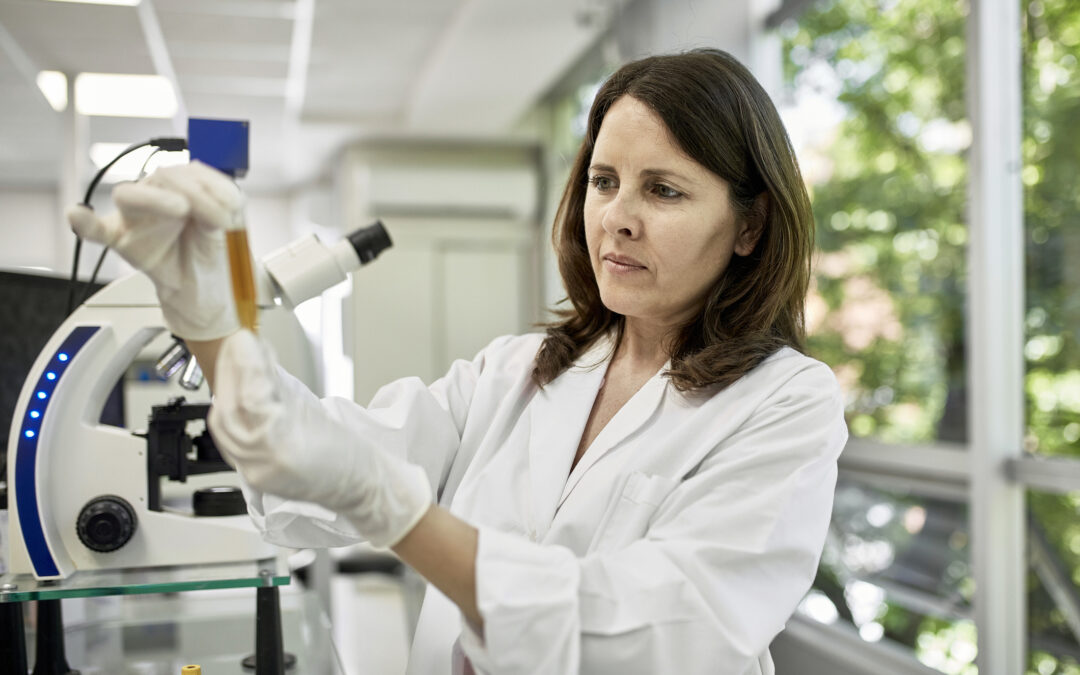
Genitourinary Cancer
Genitourinary cancers refer to cancers that affect the urinary system of both women and men. More specifically, genitourinary cancers include cancers of the kidney, testicular and bladder. For men this type of cancer can also affect the reproductive system.
This often also includes cancers of the prostate. The doctors at SCRI Oncology Partners are known for their expertise in the diagnosis, treatment, and management of prostate cancer, making them a leader in the field. Their commitment to research and continuous improvement in treatment protocols has solidified their reputation as a trusted source for advanced prostate cancer care. Learn more. If you are looking for an oncologist in Tennessee, you can learn more about our cancer care team here.
Meet our Genitourinary Cancer Doctors



What are some of the signs and symptoms of genitourinary cancers?
Genitourinary cancers have a variety of symptoms. This may include blood in the urine (also called hematuria). Blood in the urine is not always obviously detectable by sight, and such it is recommended that you make an appointment with a doctor if you have any discolored urine and are concerned that it may contain blood. Other signs include frequent or painful urination or back pain.
When it comes to testicular cancer, it is important to see a doctor if you notice pain or pressure in the testes, scrotum, lower belly or groin. Another possible symptom of testicular cancer is a heavy feel to the scrotum, or a lump or swelling in one or both of the testes.
Many of these symptoms have causes other than cancer, and many of those causes are benign. However, if you are experiencing a new or concerning symptom, it is important to tell your doctor so the cause can be found and treated as soon as possible.
Risk Factors
Staging
Treatment
Clinical Trials
How are genitourinary cancers diagnosed?
Most genitourinary cancer diagnoses will start with urine lab tests to check for blood and see if it contains any cancer or pre-cancer cells. Different urine tests can also be used to identify possible biomarkers or tumor markers, in order to see if you may have cancer. If bladder cancer is suspected, your cancer care team may recommend a cystoscopy, in which a camera is inserted to examine the inner lining of the bladder and take biopsy samples as necessary. If kidney cancer is suspected CT and MRI scans are often utilized to diagnose the cancer.
Some blood tests can help diagnose a few types of tumors, and there have been recent developments in testicular cancer blood tests. Many testicular cancers make high levels of alpha-fetoprotein (AFP), lactate dehydrogenase (LDH) and human chorionic gonadotropin (HCG) proteins which can act as tumor markers in the blood, suggesting a testicular tumor. Specific levels of these proteins in a blood test can also help doctors to tell which type of testicular cancer may be present.
Cancers are typically further diagnosed via biopsy. A biopsy is when a small piece of tissue is removed from the body and examined to see if it contains cancer cells, at which point next-generation sequencing might also be utilized to determine a cancer’s biomarkers and decide on the best treatment. That said, testicular tumors are rarely diagnosed via biopsy and so blood tests and ultrasounds are often utilized.

Risk factors for kidney, testicular and bladder cancers
While we are not sure of all of the causes of genitourinary cancer there are some factors which may increase the risk of getting kidney, testicular or bladder cancers.
Common risk factors include:
- Increase in age – About 9 out of 10 people with bladder cancer are older than 55 and around 35 in 100 kidney cancers develop in people aged 75 or older. Half of all cases of testicular cancer, meanwhile, occur in men between the ages of 20 and 34. Men are more likely than women to develop kidney, bladder or testicular cancers as well.
- Smoking – The risk increases with the length of time and number of cigarettes smoked, although the risk also decreases once one quits smoking.
- Overweight or obesity
- Exposure to harmful chemicals – Individuals working with certain chemicals may experience an increased risk of bladder or kidney cancer. Most specifically, there is research linking exposure to arsenic and cadmium to kidney cancer and exposure to benzidine and beta-naphthylamine to bladder cancer.

Staging
Cancer staging refers to the process of determining the extent of cancer in the body, including the size of the tumor and whether it has spread to other areas. Understanding the stage of cancer is crucial for doctors as it helps them assess the severity of the disease, plan the most effective treatment and identify suitable clinical trials that could be potential treatment options.
The staging system most commonly used for kidney, testicular and bladder cancers is the TNM system, in which the following questions are addressed:
- T: What is the size and extent of the primary tumor? How large is the tumor? Has it grown into nearby areas?
- N: Has the cancer spread to nearby lymph nodes?
- M: Has the cancer spread to other organs such as the bones, brain, or lungs?
The higher the number is in the stage scale the more advanced the cancer. Staging is quite complex. Don’t hesitate to discuss with your provider more to fully understand the state of your disease.
How can kidney, testicular and bladder cancers be treated?
There are many different kinds of each of these cancers, and as such there is no one right way to treat everyone. Generally, most people are treated using surgery, radiation, immunotherapy, targeted therapy, chemotherapy or a combination of the treatments to receive better outcomes.
In order to identify which treatments may be most effective for a patient, next-generation sequencing is sometimes used. Next-generation sequencing, also known as NGS or sometimes as massively parallel sequencing, is a tool used by your oncologist team to determine the specific presence of cancer biomarkers and decide on the best treatment for you. After taking a biopsy or blood sample, NGS allows your provider to test those samples for mutations and biomarkers very quickly by testing many genes of cancer simultaneously—helping to save time, money and the potential need for additional tissue samples.
Other treatments may be used alongside surgery or independently to slow cancer growth, manage symptoms or target remaining cancer cells. These other treatments include:
Radiation therapy
Radiation therapy treats cancer by using high energy rays to target and eliminate cancer cells. There are two main types of radiation therapy: external beam therapy and internal radiation therapy (also called brachytherapy). Radiation therapy can also be used to treat symptoms and improve quality of life in patients with advanced cancer.
Immunotherapy
Immunotherapy drugs are sometimes combined with other cancer treatments to help the immune system identify and destroy cancer cells more effectively, often by interacting with specific proteins to enhance the immune response.
Chemotherapy
Chemotherapy is another approach. In chemotherapy, anti-cancer drugs circulate through the bloodstream to reach cancer cells throughout the body.


Genitourinary cancer clinical trials
Today’s clinical trials are tomorrow’s treatment options. A clinical trial can help determine if a treatment, drug or procedure shows a better way of treating a particular cancer or condition. At SCRI Oncology Partners we are committed to offering the latest clinical trials to improve your outcomes and ensure access to cutting-edge scientific advancements for our patients in the community.
If you are looking for a local oncologist in Nashville, Tennessee or you are interested in participating in a clinical trial for genitourinary cancers through our collaboration with Sarah Cannon Research Institute (SCRI), a global leader in oncology research, the first step is to talk to our healthcare team.
We’re here to help, leverage our dedicated resources on kidney, testicular, and bladder cancer to learn more

How to Detect Skin Cancer
Skin cancer is the most common form of cancer in the United States with more people being diagnosed each year than all other cancers combined. Knowing what to look for can help catch it early when it’s much easier to treat.

Six Must-Knows about Bladder Cancer
Bladder cancer is the fourth most common cancer diagnosed in men, and men are four times more likely than women to develop it.
We’re here when you need us
If you were recently diagnosed or would like a second opinion, request an appointment with one of our experienced cancer doctors right here in Nashville.
We’re here when you need us
If you were recently diagnosed or would like a second opinion, request an appointment with one of our experienced cancer doctors right here in Nashville.
We’re here when you need us
If you were recently diagnosed or would like a second opinion, request an appointment with one of our experienced cancer doctors right here in Nashville.

